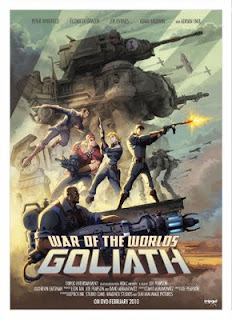
It was recently announced on the CD Projekt Red forums that they had come to an agreement with R Talsorian Games regarding the production of a table top role playing game for The Witcher. According to the announcement:
I am simultaneously excited and ambivalent about this project, due largely to the involvement of R Talsorian Games. Before I get into my reasons for ambivalence, I'd like to highlight why I'm excited about R Talsorian's involvement in this project.Together with R.Talsorian Games, makers of the hit pen and paper role-playing system Cyberpunk 2020, we are pleased to announce an agreement to develop The Witcher Role-Playing Game -- the go-to tabletop Witcher experience for pen and paper RPG enthusiasts.
The Witcher Role-Playing Game will allow tabletop RPG fans to re-create an array of characters known from the Witcher universe and live out entirely new adventures set within the world of Geralt of Rivia. Powered by Fuzion, the same ruleset that made Cyberpunk 2020 gain worldwide player acclaim, The Witcher Role-Playing Game will feature a myriad of spells, rituals, and curses; favorite gear and items from the entire Witcher series including a bestiary of devilish monsters players can face during their adventures. The system will provide all the necessary tools to create and play out your own adventures and become everything from a battle-hardened monster slayer to a merchant kingpin controlling a vast network of contacts.
The Witcher Role-Playing Game is currently slated for a mid 2016 release. More information about the system, price and availability will be provided at a later point in time.
I think that R Talsorian has historically been one of the most creative and forward looking companies in the entire role playing game industry. The company was founded in 1985 and was one of the first companies to bring Anime style gameplay into the hobby with their Mekton (1985) role playing game. The game had a relatively intuitive system that allowed for ease of play and customization of individual mechs. It also introduced players to a setting inspired by the classic Mobile Suit Gundam anime. This was quickly followed by the release of Teenagers from Outer Space (TFOS -- 1987), a role playing game that mirrored high school romance anime and featured a simple system that was good for introductory games.
The same year that TFOS was released, R Talsorian published its Cyberpunk game. While this game had some mechanics that were inspired by earlier games (the lifepath system is similar to Traveller), it had two major effects on the industry. First, it provided the market with its first "attitude" role playing game. Cyberpunk was a game written with style that evoked an attitude. This design feature would go on to influence the World of Darkness series of games, as would the rules for Cyberpsychosis which emulated the loss of humanity one feels as one acquires more cyberware and learns that "metal is better than meat." You can see echoes of this system in the Humanity trait in Vampire. R Talsorian's Cyberpunk game was a cornerstone moment in the industry and game designer Mike Pondsmith is to be praised for the inspiration.
R Talsorian's innovation didn't stop there. Their Castle Falkenstein game was one of the first Steampunk game, and still the best one. That's making quite a statement given that there are several good Steampunk games around, but it is Pondsmith's ability to infuse mood into a setting and to incorporate mechanics that fit that mood that set Castle Falkenstein apart. The company also released new editions of Mekton that were compatible with Cyberpunk, games based on Dragonball Z, Bubblegum Crisis, and Armored Trooper Votoms. There was even a short stint where R Talsorian partnered with Hero games to release a "Fuzion" powered version of Champions. The partnership seemed natural, two successful Bay Area companies working together, but ended up doing some short-term damage to the Champions brand. This is too bad, as the Fuzion version of the game is quite fun to play and easier for new gamers to pick up and play.
Man, I love this company and their products.
But...back in 2013 I backed the latest version of the Mekton role playing game. It has not yet been published and updates have become scarce from the company. I'm not worried about the project, but I do wish communication was better. And I've got no fear that anyone is running away with a Kickstarter fortune. The Mekton game raised a respectable amount of money, but no one is getting rich off of it. I also understand that a part of the reason for the lack of communication is that R Talsorian has been working with CD Projekt Red on a new Cyberpunk computer game.
But it's hard to get excited about a game when I'm still waiting for another game to come out...one I've already paid for.
That said, I'm pretty jazzed and eagerly await the release of The Witcher table top game. Even though I still think it's a pretty silly name for a franchise.



